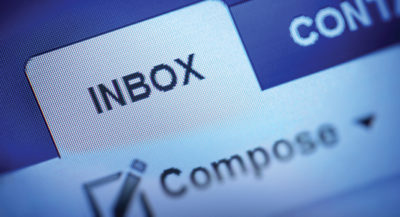Tips and advice for making the best use of this medium.

E-mail is a great tool that has become both a blessing and a curse. Designed to enhance productivity in the workplace, it slowly had the reverse effect. Today, e-mail is ubiquitous, much easier to use, and often abused. It’s time to focus on how to turn e-mail back into an effective management tool for 21st century executives.
Don’t use it to do your thinking for you. Writing e-mails at work is not like doing calculus at school. At school you needed to show that your logic flow was part of the answer. With e-mail, assume no one is interested in how you came to your conclusion. They are only interested in what impacts them and their work and anything on which they need to take action.
Make your request clear. When publishers lay out a newspaper, they place the most important news “above the fold.” You should think the same way about your e-mails, especially when you are making requests. If you ask for something, always put that request, including names and dates related to it, in the first two or three sentences of your e-mail. Do not assume that the reader will read far enough to see the request buried in all of the detail.
Limit emotion of all types. Humor can cut through a lot of noise when you communicate, and it can help a team rally around a common thought or issue, but it rarely belongs in e-mail. This is especially true of sarcasm, which is very easy to misinterpret. The reader almost never understands what you are trying to communicate.
Use the save button before the send button. When we were young and got angry, people told us to count to 10 before saying anything. When you need to be cool and show that you have a levelheaded approach to problems, the last thing you want to do is send an e-mail. If you are writing an e-mail about an emotional or difficult topic, such as a performance review or a follow up to a contentious meeting, save the e-mail. Then, come back to it in 30 minutes or even the next day and decide whether you want to send at all.
Use the phone. These days, an e-mail lasts forever and there is no such thing as privacy in the workplace. In many cases, the laws and regulations governing publicly held companies require strict adherence to document retention rules. If you don’t want someone else to read what you wrote, don’t send it via e-mail. Also, if the subject matter you want to discuss is important and sensitive or personal, a phone call or face-to-face discussion is always the better option.
The bottom line. E-mail is a great tool for communicating, although we are never as effective as we think we are going to be. Remember to stop and think before hitting “send.”
Have questions?
Get answers from Microsofts Cloud Solutions Partner!
Call us at: 856-745-9990 or visit: https://southjerseytechies.net/
South Jersey Techies, LLC is a full Managed Web and Technology Services Company providing IT Services, Website Design Services, Server Support, Network Consulting, Internet Phones, Cloud Solutions Provider and much more. Contact for More Information.
To read this article in its entirety click here.

